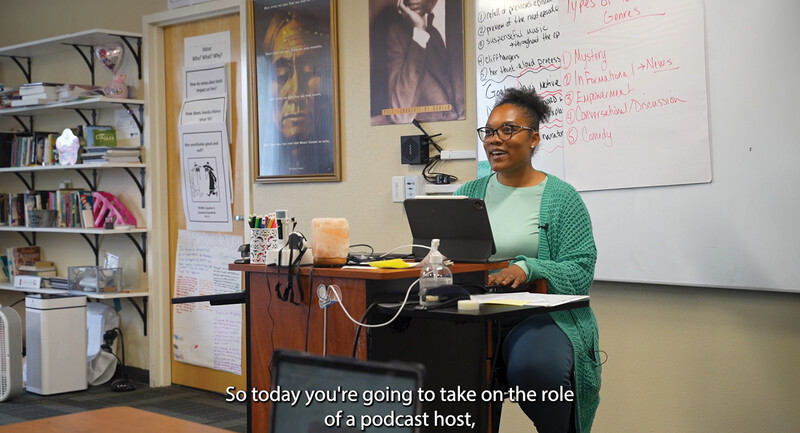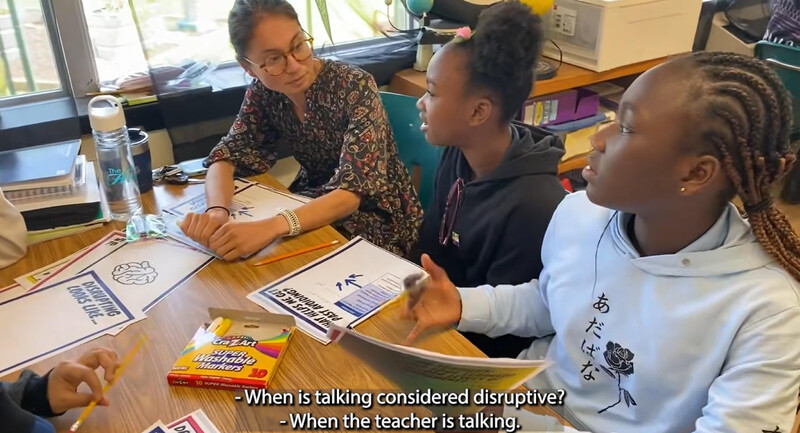This blog post is part of an ASCD partnership with Wonder Media. To see all blog posts from Wonder Media on the 16 Habits of Mind, you can click here.
Don’t forget to submit to the Habits of Mind Time Capsule! For submission form, click here.
“Common sense and a sense of humor are the same thing, moving at different speeds. A sense of humor is just common sense, dancing.”
-William James
They say laughter is the best medicine, and truly, laughter has medicinal value. Laughter really can decrease stress, boost immunity and even help alleviate pain. Laughter is easily ignited and shared. It is one of the most positive, common connections two or more people can share.
Children are experts at laughter. They laugh freely, joyfully, and often. Children are capable of seeing and identifying humor in a variety of contexts. They understand the power of laughter. As educators, we have the fascinating job of blending humor into the school day, of threading moments of humor, finding humorous content and ironies, and of exploring humor with students. We must help them understand the impactful role humor plays in the thinking and learning process.
Art Costa and Bena Kallick refer to humor as “finding the whimsical, incongruous and unexpected. Being able to laugh at oneself.” Finding Humor as a Habit of Mind emphasizes the importance of developing one’s sense of humor, of recognizing that the ability to find, share and celebrate humor is a trait that successful, diligent people use to solve problems, face challenges and overcome obstacles.
There are many ways that early childhood and elementary teachers can foster humor and laughter in their classrooms to develop this essential life-long habit for their students.
- Joke of The Day
A simple routine like posting a joke of the day or joke of the week instantly brings humor into the classroom. Having students contribute jokes and look for jokes that may take some thinking to “find the humor” is a great way to build classroom culture and build the habit of Finding Humor. Students love to share jokes as part of the classroom routine and it truly has a positive impact on everyone.
- Word Jumbles
Another terrific weekly practice that injects humor into the day is to present students with a daily (or weekly) word jumble. You can find these online at: http://www.jumble.com .Though the word jumble part can take some time, the humor comes in when they are solving the riddle and cartoon to solve the puzzle. It’s key to include the actual comic image to go with the jumble. The visual clues and captions are essential to understanding the humor of the riddle’s solution. This is a simple but engaging way to help students start their day by finding and sharing humor (and it takes some smarts!)
- Picture Books
Using picture books in the classroom is an excellent way to add a little laughter to the day and to teach the Habit of Mind, “Finding Humor.” The Tedd Arnold trilogy, “Parts”, “More Parts”, and “Even More Parts” are wonderful and funny picture books that teach children about analogies and puns. Children are delighted by “Lend me a hand”…when the boy actually “hands over his HAND to his father!” These books and others like it are excellent resources for teachers that show humor in a creative way. After discussing the three stories, children are then tasked with painting a picture about something they find funny and writing about why they think it’s funny!
- Habits of Mind Animations
The Habits of Mind Animations offer an excellent lesson on “Finding Humor”. One of the characters accidentally calls his teacher “Mom”…something kids can completely relate to! The sweet story shows how, while the class laughs, they were not really laughing at the boy, but just how funny it is to call your teacher “Mom.” This episode opens the floor for a great discussion about being able to laugh at yourself! Sometimes, this needs to be talked about and pointed out to kids. We all make mistakes and do funny things…let’s learn to laugh at those silly mistakes! As Charlie Chaplin said, “A day without laughter is a day wasted.”
While we are all well aware that a little humor can lighten the mood of the classroom and help to create a comfortable environment for learning, there is also a multitude of research that supports the fact that humor can actually aide and boost retention. Sarah Henderson states in her article for Edutopia that, “Essentially, humor activates our sense of wonder, which is where new learning begins.” The link to the full article is included here: https://www.edutopia.org/blog/laughter-learning-humor-boosts-retention-sarah-henderson
Having humor in life and being able to laugh is something that we all need. Allowing and encouraging humor in the classroom not only makes for a more fun and comfortable environment, but can actually support learning. It is our hope to raise children who are focused, resilient, life-long learners, but it would be the icing on the cake if they could also laugh a little and find humor in the world! We all need a good laugh from time to time!
“A well-developed sense of humor is the pole that adds balance to your steps as you walk through the tightrope of life.”
-William Arthur Ward
Laura Fitzpatrick has been an Early Childhood Educator in South Florida for 16 years. She is an avid blogger, presenter, and most recently, a published author of her first children’s book, “Words Glow…Minds Grow”, published through The Institute for The Habits of Mind. Laura is passionate about weaving the Habits of Mind into her classroom and into her curriculum. Follow her on Twitter: @Misfitz333 and https://wordsglowmindsgrow.wordpress.com
Kathleen Malanowski has been an elementary educator and school administrator for over 25 years. She is passionate about teaching and learning and loves being a Lower School Principal. Kathleen works with teachers and students to develop a school-wide culture centered around thinking and learning through a collaborative and supportive school environment. Follow her on twitter at @NBPSLower.








